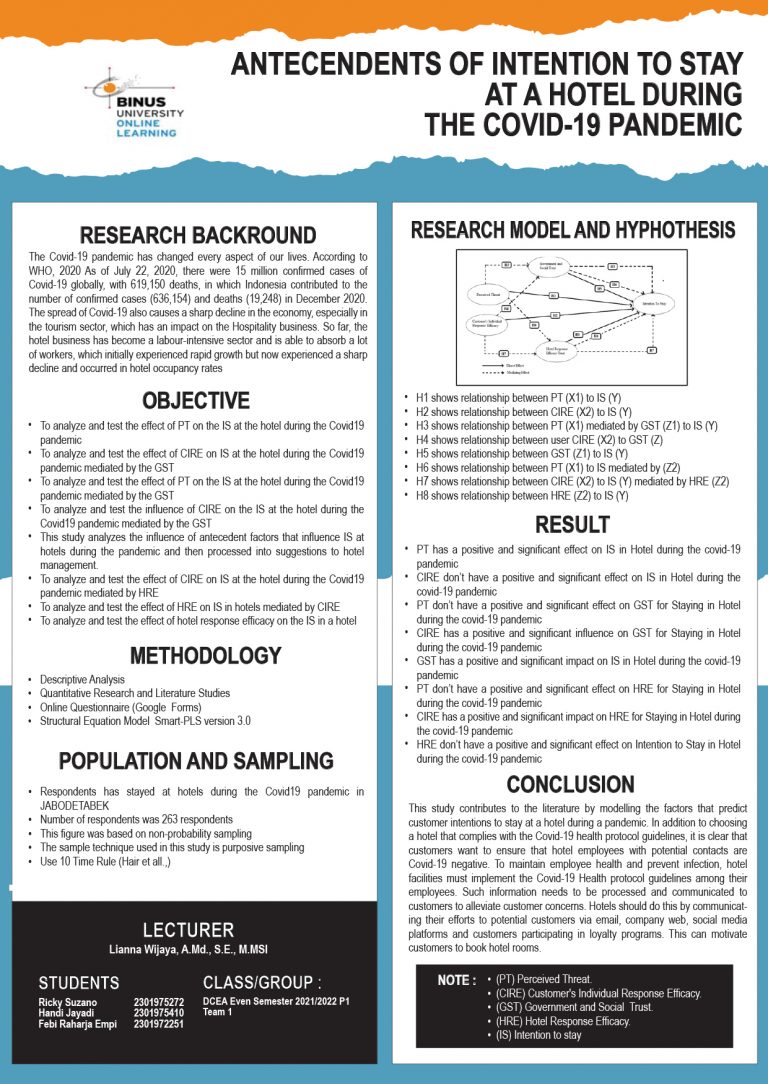Antecedents of Intention to Stay at a Hotel During The Covid-19 Pandemic
The COVID-19 pandemic has profoundly altered various facets of our daily lives. According to the World Health Organization (WHO), by July 22, 2020, there were 15 million confirmed cases of COVID-19 worldwide, resulting in 619,150 deaths. Indonesia contributed significantly to these figures, reporting 636,154 confirmed cases and 19,248 deaths by December 2020. The spread of the virus has also led to a significant downturn in the economy, particularly impacting the tourism sector, which, in turn, has affected businesses in the hospitality industry. Historically, the hotel industry has been a major source of employment, experiencing rapid growth. However, due to the pandemic, hotel occupancy rates have sharply declined, resulting in challenges for the sector and its workforce.
The impact of the COVID-19 pandemic on the economy, particularly in sectors like tourism and hospitality, underscores the importance of addressing economic resilience, job creation, and social protection measures to mitigate the effects of economic downturns. The decline in hotel occupancy rates due to the pandemic reflects broader challenges in urban sustainability and community resilience. Addressing issues within the hospitality sector can contribute to achieving this goal by fostering sustainable tourism practices and promoting the resilience of urban communities.
Keywords: SDG 8( economic growth) , SDG 11 (city)



Comments :